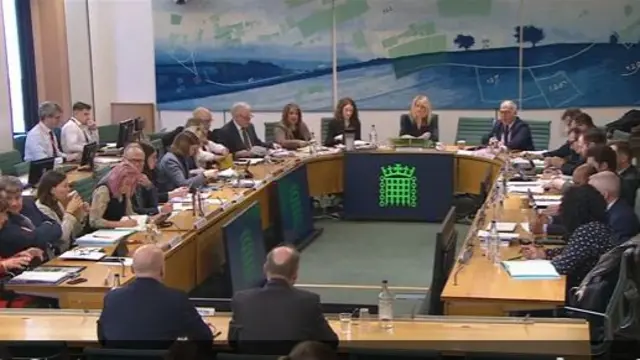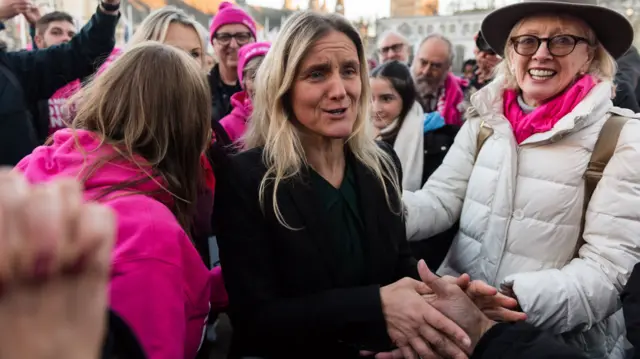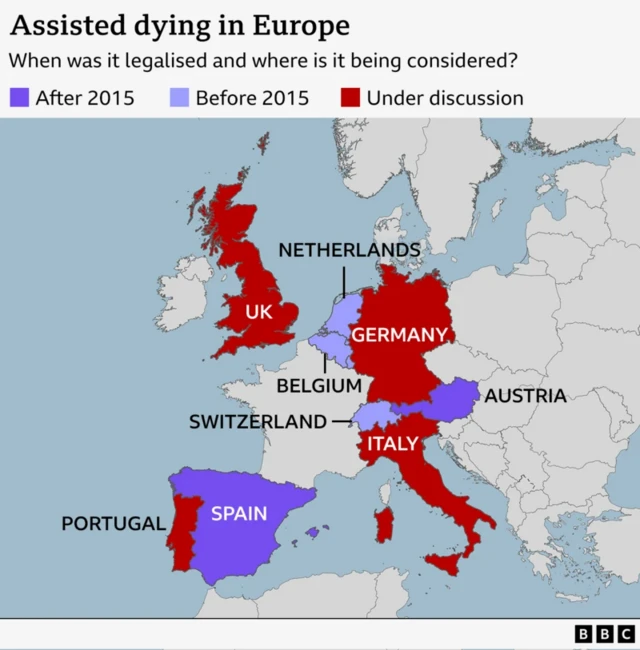The MPs on the committee include key figures on both sides of debatepublished at 13:45 GMT 28 January
 Image source, ParliamentLive TV
Image source, ParliamentLive TVThere are also five committee chairs, as well as the MPs on the committee
As a reminder, a total of 330 MPs voted in favour of the historic bill to legalise assisted dying in England and Wales, while 275 voted against it.
This was a free vote - meaning MPs were not pressured to vote along party lines.
The committee that is examining the bill in detail today is made up of 23 MPs.
They include key figures from both sides of the debate, including the architect of the bill, Kim Leadbeater, as well as Tory MP Danny Kruger who is a vocal opponent of assisted dying.
Unusually, the bill's committee includes double the standard number of ministers - with Health Minister Stephen Kinnock and Justice Minister Sarah Sackman both appearing.
- Read more about the committee's members



